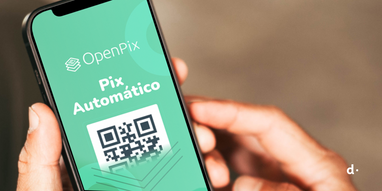How Nigerian Cashless Policies are Driving the Mobile Money Boom

Withdrawing up to N2 million from banks over-the-counter has become a distant memory for Nigerians due to the government’s redesigned banknotes and imposing of cash withdrawal limits.
Withdrawing up to N2 million from banks over-the-counter has become a distant memory for Nigerians due to the government’s redesigned banknotes and imposing of cash withdrawal limits. In December 2022, Nigeria’s cash withdrawal limit was significantly reduced to just 500,000 Naira per month, approximately USD 1,000, resulting in a shift towards digital payments in a previously cash-reliant society.
Consequently, people are capitalizing on electronic payment methods such as mobile money accounts, QR codes and USSD for their financial transactions. Not only are these methods secure, but they also offer a more efficient alternative to traditional banking processes.
Despite the increased availability of various digital payment channels, Nigerians still rely heavily on cash for their day-to-day transactions. This is mainly due to the fact that cash has historically been fairly accessible, and it’s especially convenient for people with no access to a bank account or credit card.
Mobile Money in Nigeria is Growing in Popularity
Today, mobile money is becoming an increasingly popular payment option in Nigeria. This technology enables users to easily transfer funds, make payments and access financial services from the convenience of their cell phones. The service requires users to register with a cell phone provider and link their phone numbers to a bank account or e-wallet. This makes it easy for people without access to traditional banking services to carry out transactions quickly and securely.

Mobile money has the potential to revolutionizethe Nigerian economy byproviding more widespread access to financial services. It can also open upnew opportunities for businesses as they are able to tap into new marketsand expand their customer base.
LEARN MORE ABOUT THE PAYMENT LANDSCAPE IN AFRICA
What Else is On the Horizon for Nigeria?
Nigeria’s digital payment landscape has seen impressive growth over the past few years, with the total transaction value in the Digital Payments segment projected to reach $16.69bn by the end of 2023. Furthermore, the prospective compound annual growth rate (CAGR) is estimated to be 13.7% for the period between 2023-2027, contributing towards a projected total of $27.89bn by 2027.
Digital Commerce (which includes transactions for retail goods and services purchased online), is the largest segment, with a projected transaction value of $14.48bn in 2023. While China leads globally in terms of total transaction value (with a projected $3,639.00bn in 2023), Nigeria’s digital payment landscape continues to grow and is poised to make a significant impact on the country’s economy over the coming years.
How Does dLocal Fit into the Bigger Picture?
Payments are still extremely fragmented throughout Africa, so for today’s businesses operating in the region, it’s not enough to simply have a payment partner. What’s crucial is having local experts who can identify and address the hurdles faced by each individual African country. That’s where we come in!
At dLocal, our mission is to help merchants expand and reach their growth objectives in the most efficient manner possible. Our highly knowledgeable team leverages local knowledge to arm businesses with the tools for making smarter decisions relating to their operations. Furthermore, dLocal enables you to provide your customers with their preferred payment methods, ensuring the best checkout experience possible.
Get in touch with our payment experts
We help global companies such as Amazon, Spotify, and Microsoft find new opportunities in high-growth markets. Let's think outside the box for tailor-made payment solutions for your business. Fill out this form, and we'll get back to you as soon as possible.
Contact us




